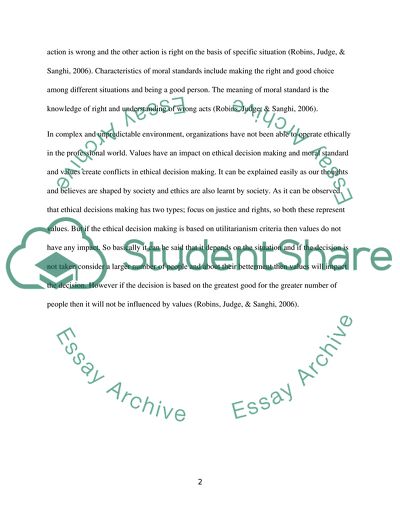Cite this document
(Answer the 3 questions Essay Example | Topics and Well Written Essays - 1250 words - 1, n.d.)
Answer the 3 questions Essay Example | Topics and Well Written Essays - 1250 words - 1. https://studentshare.org/medical-science/1807219-how-do-our-values-impact-our-ethical-decisions-and-moral-standards
Answer the 3 questions Essay Example | Topics and Well Written Essays - 1250 words - 1. https://studentshare.org/medical-science/1807219-how-do-our-values-impact-our-ethical-decisions-and-moral-standards
(Answer the 3 Questions Essay Example | Topics and Well Written Essays - 1250 Words - 1)
Answer the 3 Questions Essay Example | Topics and Well Written Essays - 1250 Words - 1. https://studentshare.org/medical-science/1807219-how-do-our-values-impact-our-ethical-decisions-and-moral-standards.
Answer the 3 Questions Essay Example | Topics and Well Written Essays - 1250 Words - 1. https://studentshare.org/medical-science/1807219-how-do-our-values-impact-our-ethical-decisions-and-moral-standards.
“Answer the 3 Questions Essay Example | Topics and Well Written Essays - 1250 Words - 1”. https://studentshare.org/medical-science/1807219-how-do-our-values-impact-our-ethical-decisions-and-moral-standards.


